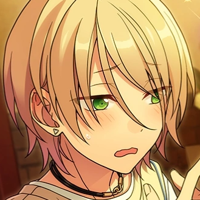Isolde mbti kişilik türü
Kişilik
"Isolde hangi kişilik türü? Isolde, MBTI, 4w3 - so/sx - 461 'de INFP kişilik türüdür, RLOAI, RLOAI, büyük 5, EIE' dır."
𝐈𝐬𝐨𝐥𝐝𝐞 𝐢𝐬 𝐒𝐎𝟒: 𝐓𝐡𝐞 𝐏𝐚𝐬𝐬𝐢𝐯𝐞 𝐆𝐥𝐨𝐫𝐢𝐟𝐢𝐜𝐚𝐭𝐢𝐨𝐧 𝐨𝐟 𝐒𝐮𝐟𝐟𝐞𝐫𝐢𝐧𝐠 𝑻𝒉𝒆 𝑨𝒆𝒔𝒕𝒉𝒆𝒕𝒊𝒄𝒊𝒛𝒂𝒕𝒊𝒐𝒏 𝒐𝒇 𝑷𝒂𝒊𝒏 𝒂𝒔 𝑺𝒂𝒍𝒗𝒂𝒕𝒊𝒐𝒏 At the heart of Isolde’s character lies the SO4’s deep tendency to romanticize pain, not merely to express it through art or poetry, but to embrace it as destiny itself. Her seemingly incomprehensible acts—killing birds, her brother, and countless others—are, in her eyes, merciful. She views death as a release from suffering, a form of salvation from a pitiful fate. By aestheticizing death, she believes she is offering liberation to others with sincere compassion. The murders on the Tosca stage are not mere dramatic gestures; they are an enactment of her aesthetic vision, transforming the stage into a shrine to her glorified suffering. 𝑻𝒉𝒆 𝑹𝒆𝒘𝒂𝒓𝒅 𝑷𝒔𝒚𝒄𝒉𝒐𝒍𝒐𝒈𝒚 𝒐𝒇 𝑺𝑶4 This beautification of pain is fueled by the SO4’s reward psychology, the belief that suffering will eventually be redeemed. The inner narrative of “Because I suffer, I will be saved” becomes an obsession, projected onto art, stories, and other people. Isolde embodies this perfectly. In the opera, she identifies with Tosca, a tragic figure consumed by fate, while imagining Cavaradossi, Tosca’s lover, as Kakania, her personal savior. She rewrites the opera in her mind, becoming Tosca, killing Karl as a symbolic act of release, and pleading with Kakania to escape with her to the Golden Island, a place of eternal salvation and reward for a life of suffering. Her repainting of her dead brother’s Golden Island painting hauntingly illustrates how self-centered and fantastical this glorification of pain has become. 𝑻𝒉𝒆 𝑹𝒐𝒐𝒕 𝒐𝒇 𝑬𝒏𝒗𝒚 𝒂𝒏𝒅 𝒕𝒉𝒆 𝑳𝒐𝒔𝒔 𝒐𝒇 𝑺𝒆𝒍𝒇𝒉𝒐𝒐𝒅 SO4s often grow up in environments where material needs are met but emotional needs are ignored or controlled. Their caregivers tend to be authoritarian, constantly pointing out flaws and demanding compliance. Every aspect of their life—actions, thoughts, and relationships—must conform to rigid expectations, stripping them of autonomy and confidence, leaving them ashamed, alienated, and emotionally paralyzed. Isolde internalizes this shame, believing herself inherently broken, incapable of being “normal.” This is the core mechanism of Envy in the social subtype: building an identity around not belonging. They do not simply suffer; they glorify their inability to be normal and cling to the fantasy that someone will one day save them. 𝑻𝒉𝒆 𝑰𝒍𝒍𝒖𝒔𝒊𝒐𝒏 𝒐𝒇 𝑳𝒊𝒃𝒆𝒓𝒂𝒕𝒊𝒐𝒏 Kakania offers Isolde a glimpse of true liberation, a life free from the judgment of others and the radical act of forgiving herself. For a brief moment, she confronts her repressed desires and the shame she carries. Yet she cannot abandon the narrative she has constructed: that suffering only has meaning if it leads to salvation. She sees Kakania not as a mirror but as a messiah. Her suffering exists for her own sense of purpose, and the reward she seeks is not healing but recognition, confirmation that her pain mattered. In the end, her obsession with suffering is too deeply rooted. Liberation is possible, but she chooses the aesthetic of tragedy instead.
Biyografi
Isolde never "plays" roles on stage, but rather sings by invoking spirits, letting them possess her body to sing — she is the vessel of the character, and the character itself. She has always been like this, and it should remain so. Who says identity doesn't need acting? Who says life isn't a stage? When the cursed Dittarsdorf family has only itself and the carefree Theophil left — "My dear brother, we should possess the true virtues and dignity of nobility."
























